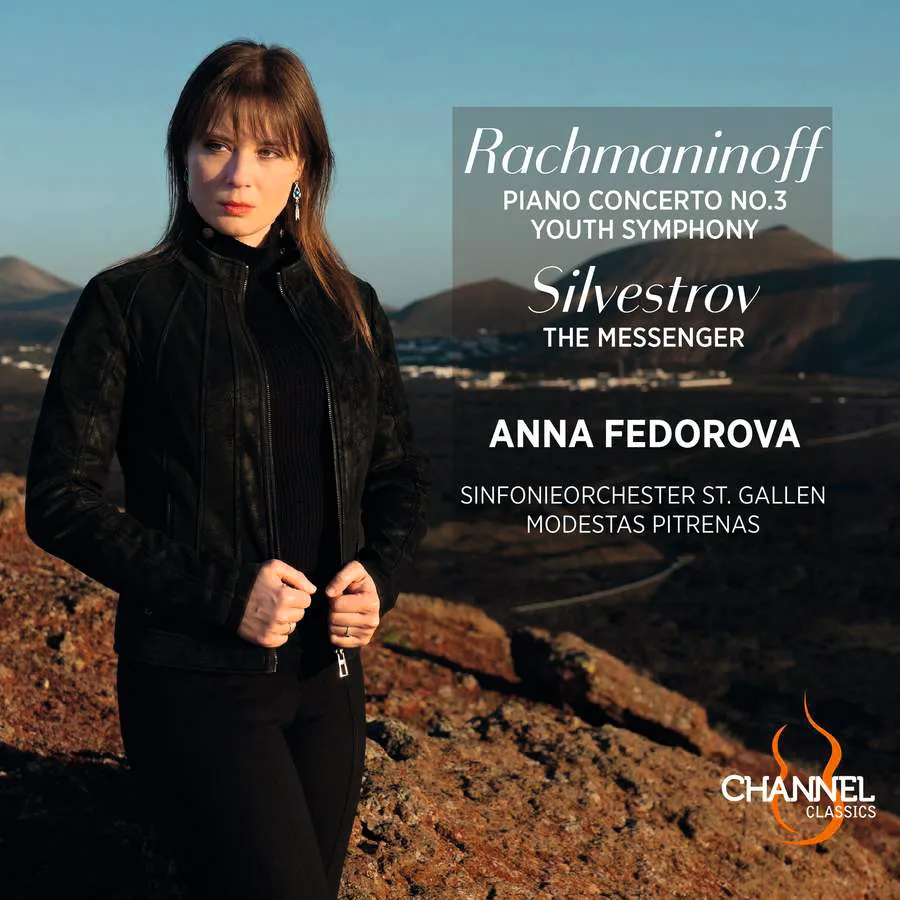
Rachmaninov • Valentin Silvestrov Rachmaninov: Piano Concerto No. 3; Youth Symphony; Silvestrov: The Messenger Anna Fedorova (piano); Sinfonieorchester St Gallen/Modestas Pitrėnas Channel Classics CCS45023 68:50 mins
Back in 2020, I gave a very warm welcome to this team’s first volume of Rachmaninov’s Concertos. A great deal has happened since, not least Russia’s invasion of Anna Fedorova’s home country, which surely explains the otherwise rather eccentric programming of this final instalment. After the concerto, rather than include another of Rachmaninov’s piano works, orchestra and soloist apparently go their separate ways: Modestas Pitrėnas conducts the so-called Youth Symphony, the 18-year-old Rachmaninov’s exuberant but heavily-indebted-to-Tchaikovsky piece composed in his final year at the Moscow Conservatory; then Fedorova plays the very inward and totally unrelated The Messenger by Ukraine’s most celebrated living composer, Valentin Silvestrov.
Fedorova brings a deal of this inward quality to Rachmaninov’s mighty Third – admittedly a work with an understated beginning. But disappointingly, Fedorova generally takes a slow and ruminative approach, dampening the fire that one can hear in so many more compelling performances of this work. Often, where Rachmaninov requires a resumption of the movement’s essential flow or even a quickening, Fedorova pulls back: this happens most grievously at the end of the cadenza, even before the marked Meno mosso (‘less rapid’) – the flute solo that follows does not so much float in as cautiously place its notes to match Fedorova’s unusually slowish tempo. Things improve with the second movement and the lively finale, though the final peroration, gentle and good-natured here, lacks a sense of hard-won triumph.
Daniel Jaffé
